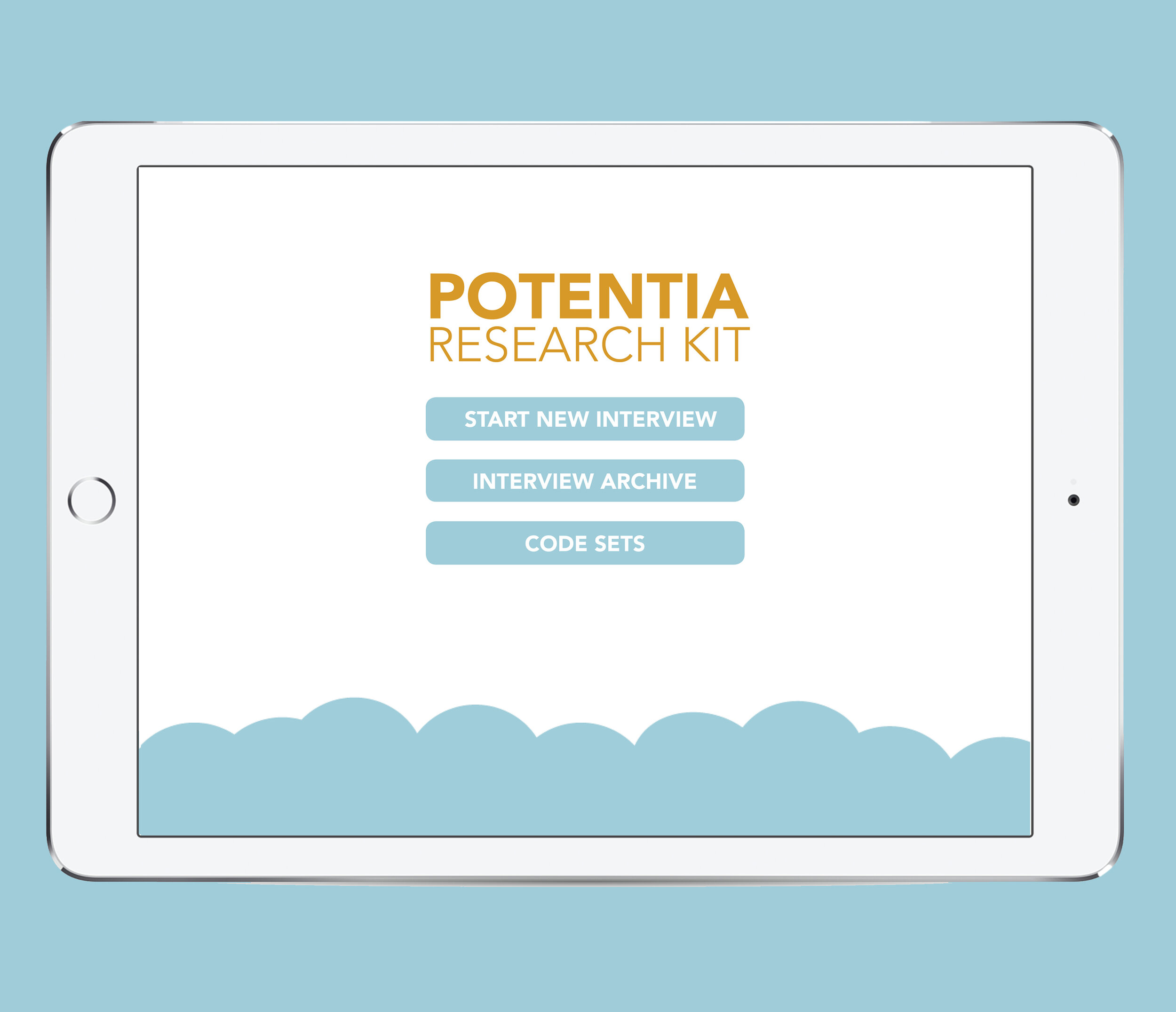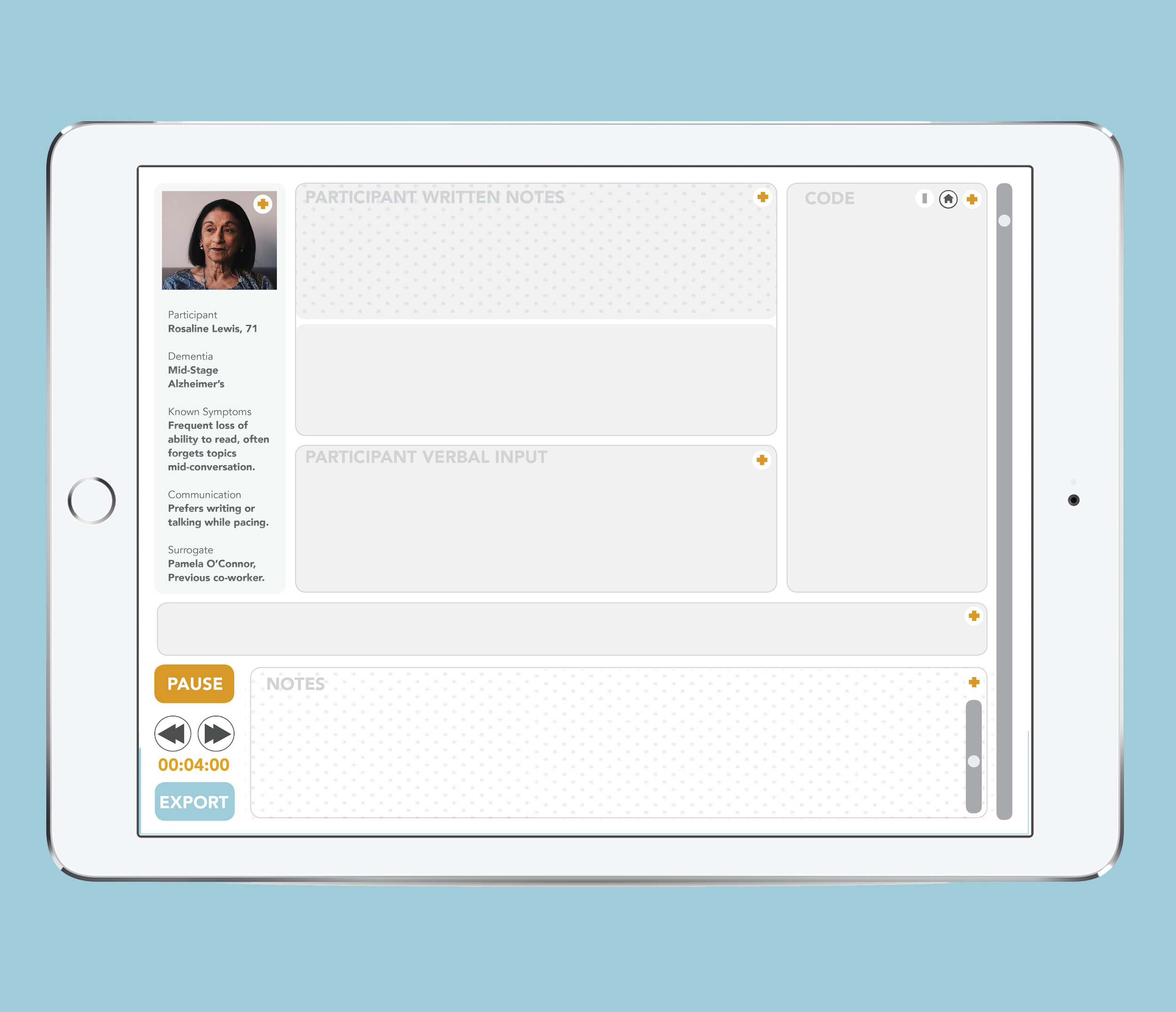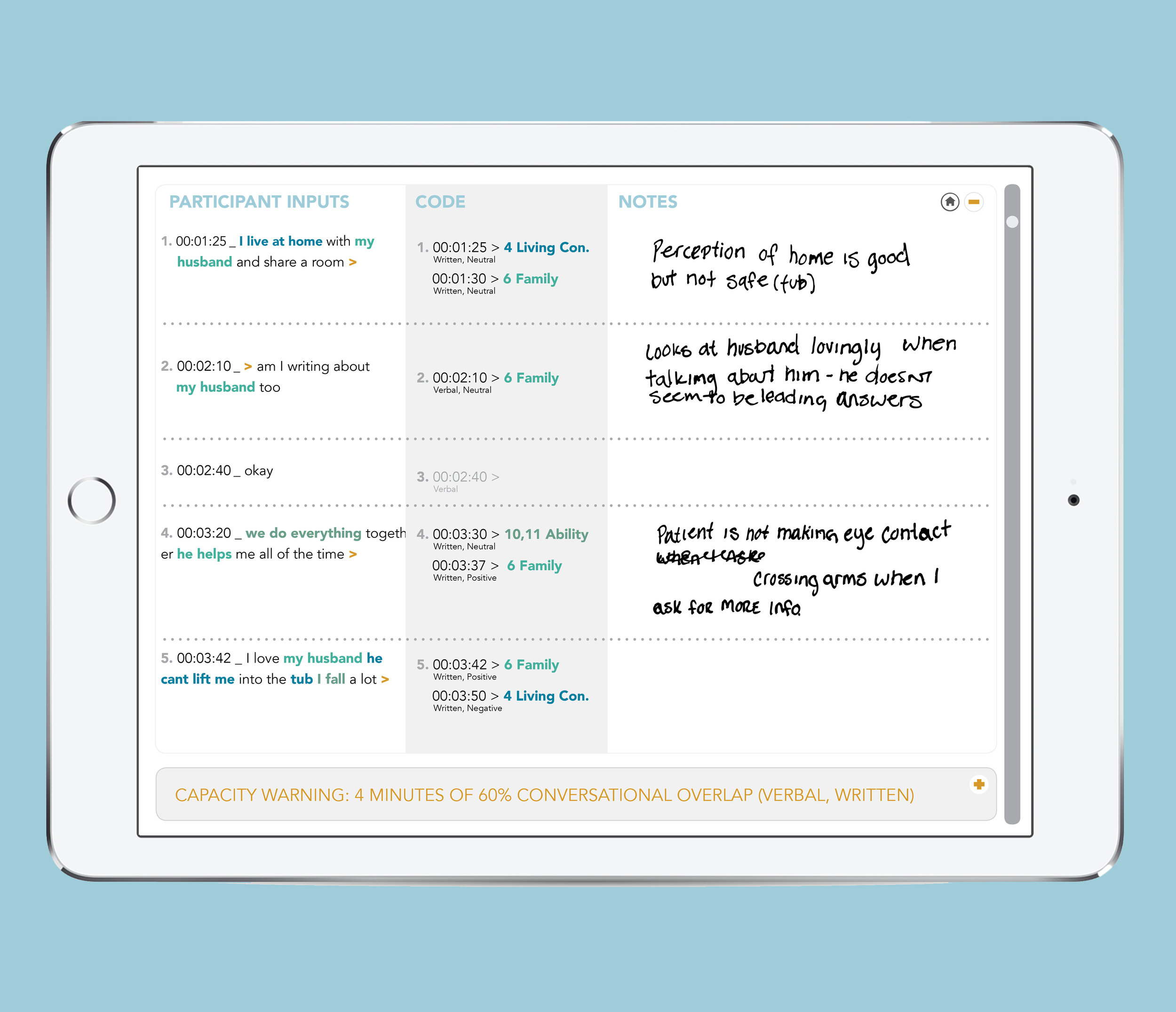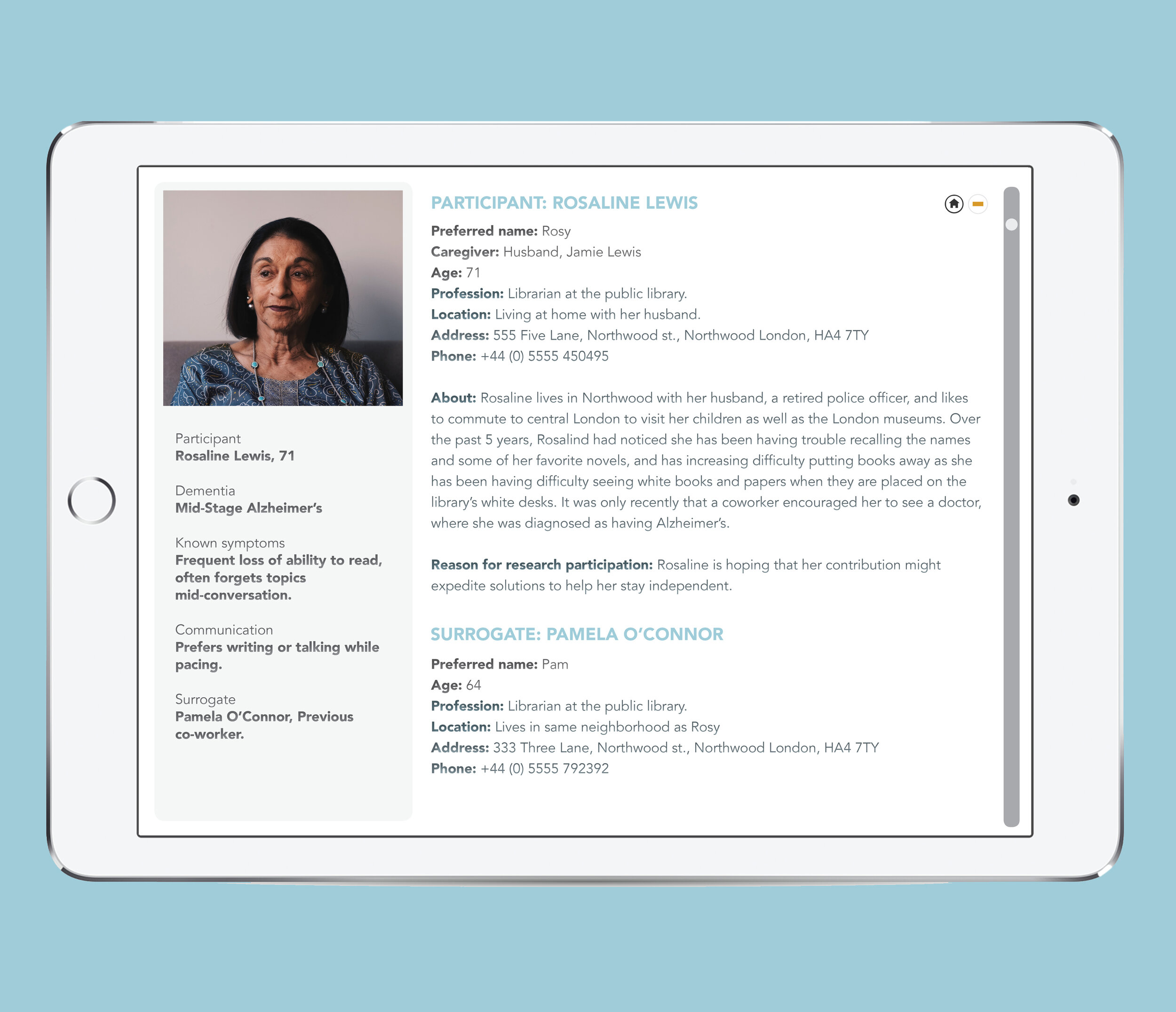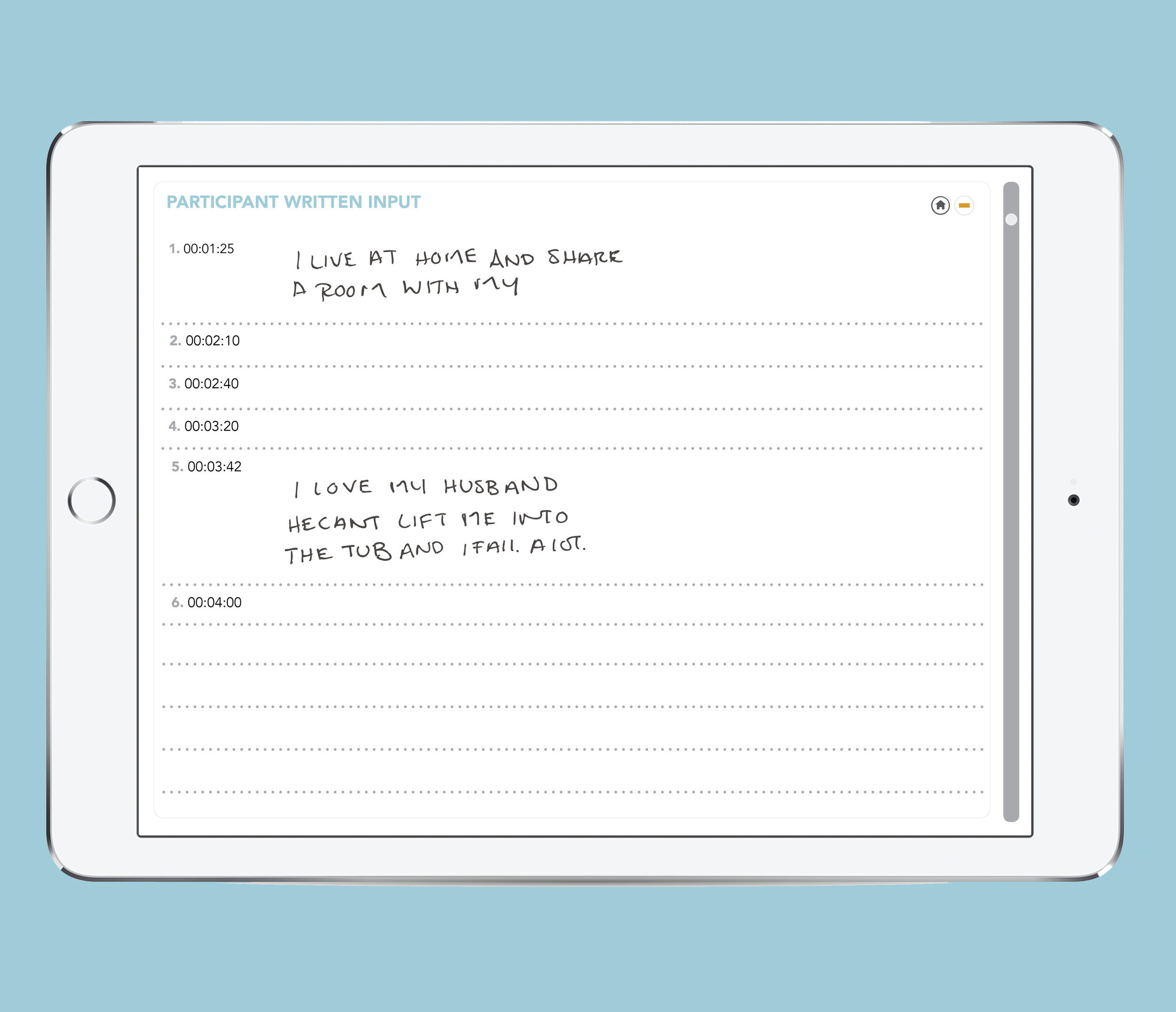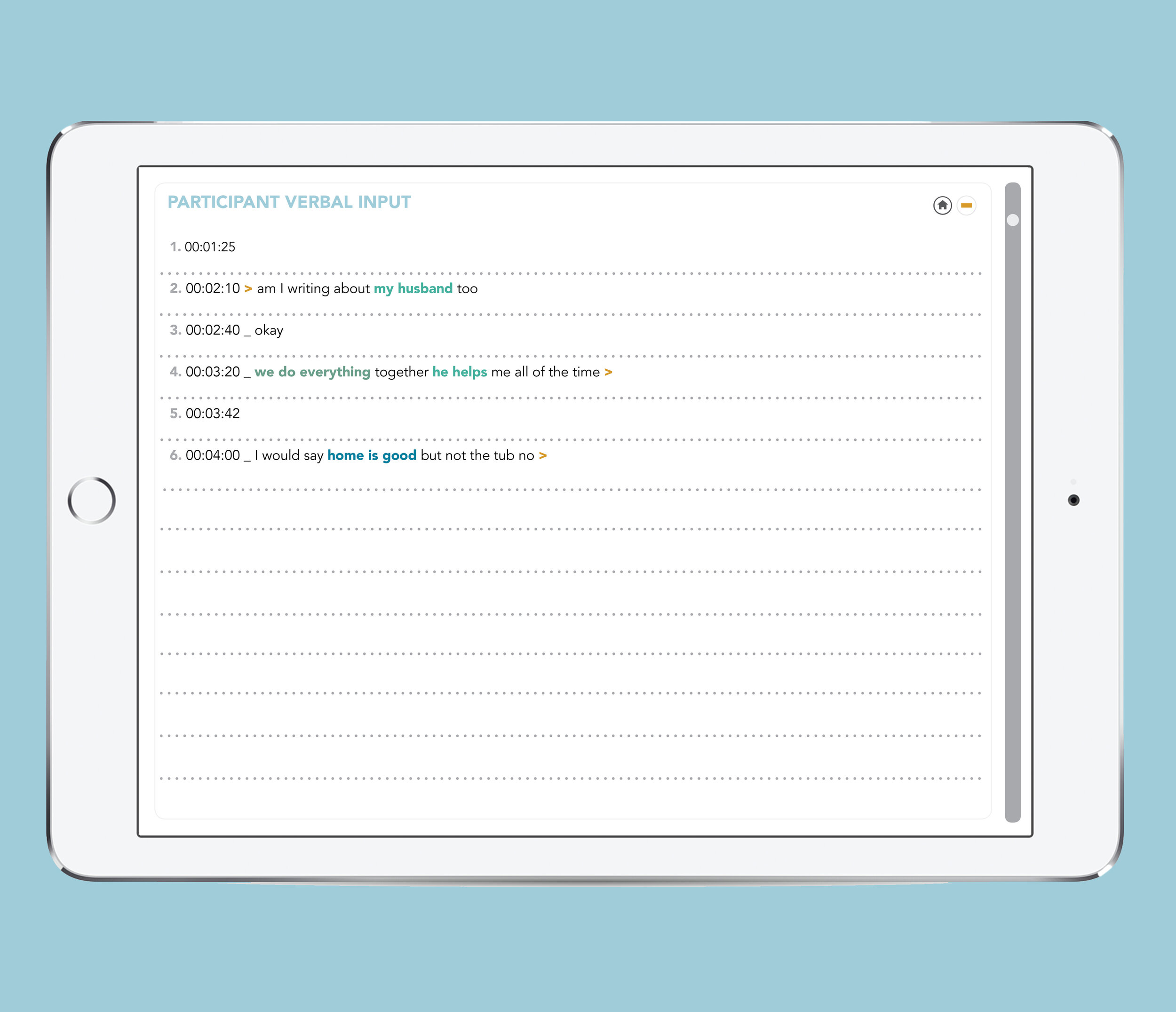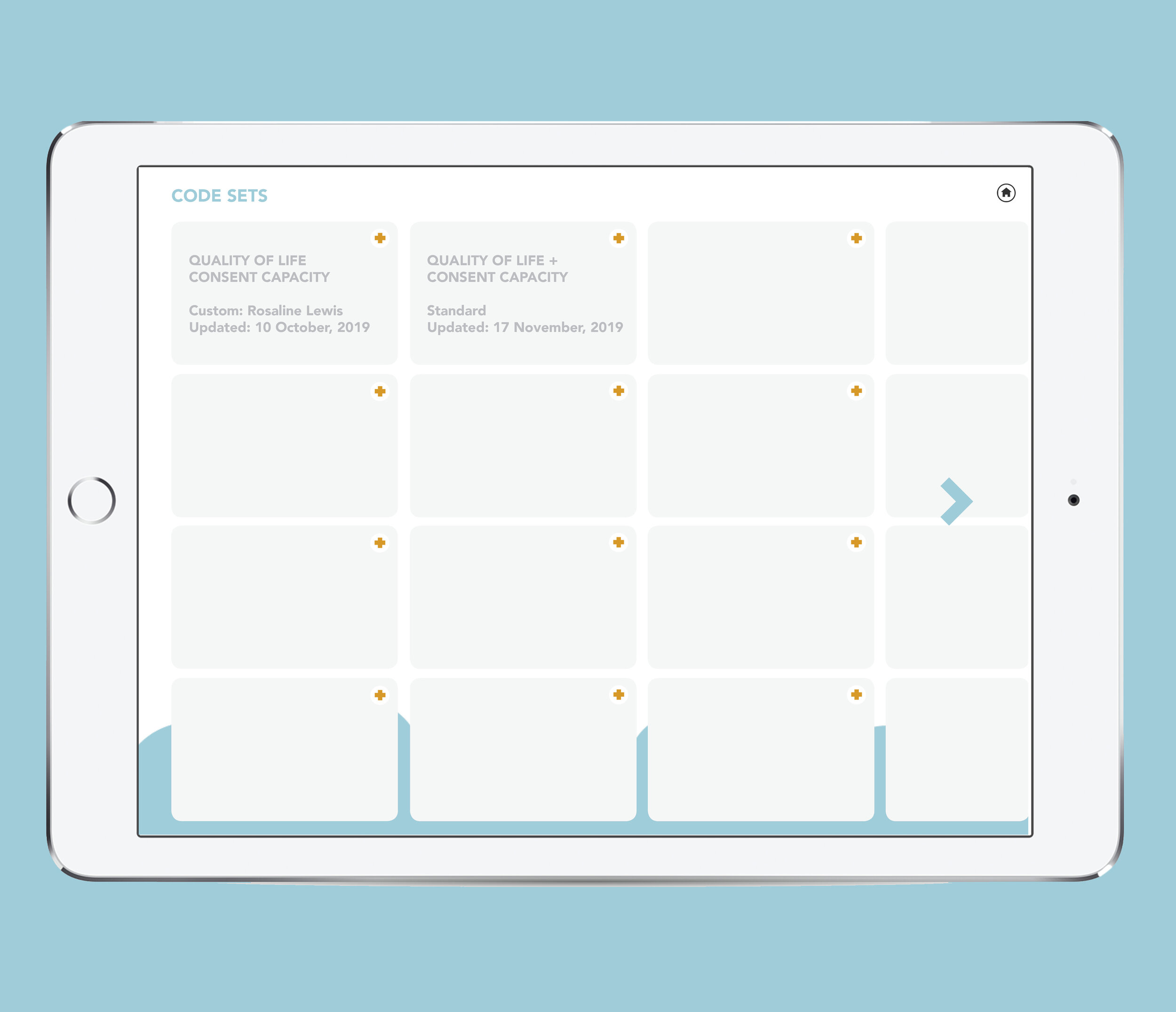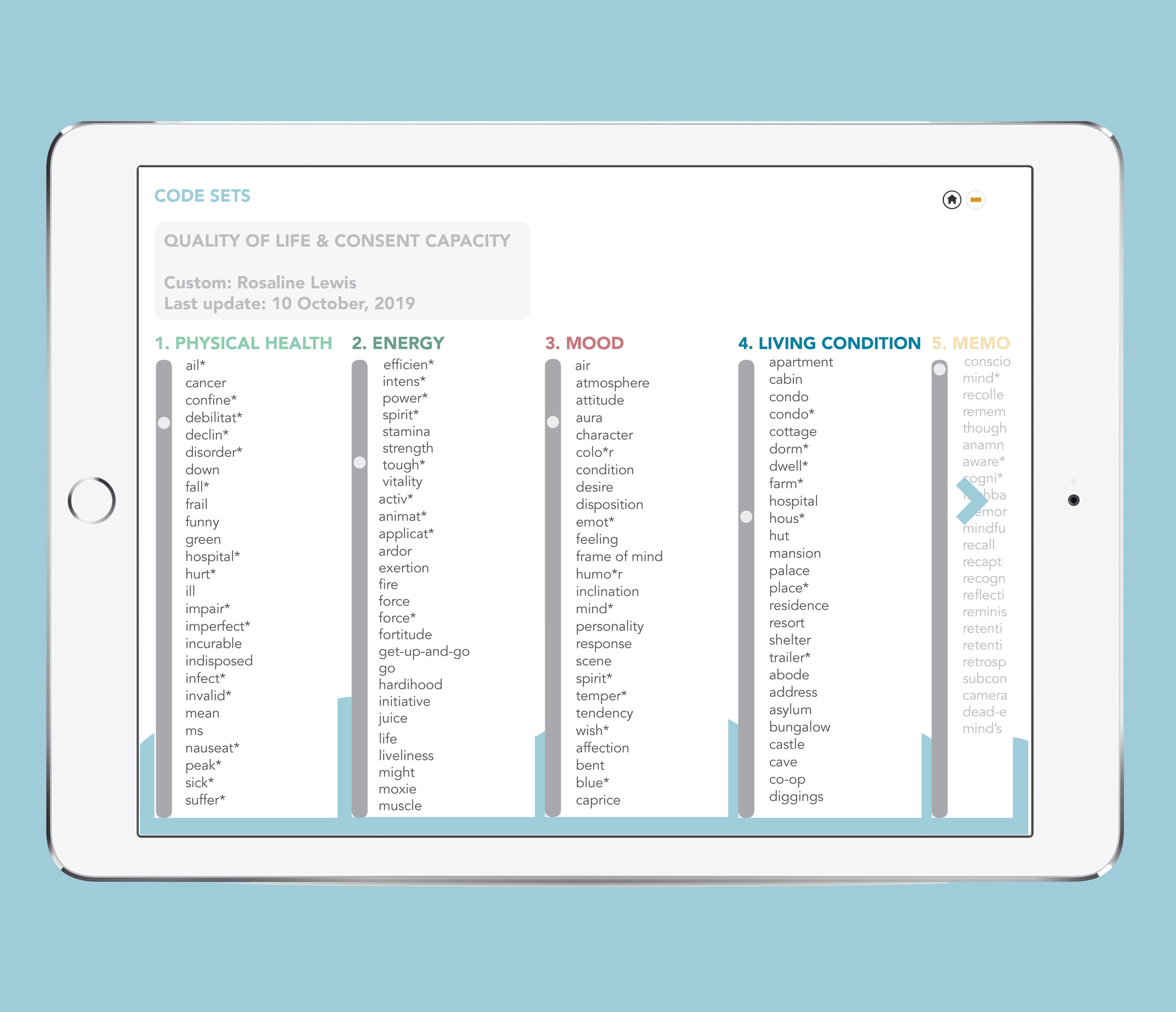Potentia Research Kit
HEALTHCARE | USER RESEARCH | EDUCATION
Master of Research in Healthcare & Design final research project, Royal College of Art and Imperial College London.
Opportunity
Increase quality of life for people with dementia and decrease £650 billion annual economic impact of dementia world-wide.
OUTCOME
A multifactorial, artificially intelligent, live-coding system to facilitate dementia-inclusive qualitative research and meaningful service interventions.
THE INTERVENTION
For research participants with dementia, capacity to consent is fluid. This fluidity can be both legally and ethically intimidating for researchers, participants, and caregivers alike. Lack of systems and tools to aid in the inclusion of participants with dementia often leads to their omission and ultimately the exclusion of their input towards the infrastructure built to aid them. The Potentia Research Kit as a proposed intervention to address this pressing issue by analysing patterns in the written and verbal cues of people with dementia to monitor consent and aid the researcher in guiding conversation; allowing them to better navigate the fluid nature of participant capacity. By comparing these participant cues to the researchers own verbal input and can also help researchers better understand how their approaches affect participant responses. With an ageing global population that introduces 10 million new dementia patients every year, it is increasingly urgent essential that research tools and systems be designed to enable more inclusive and consistent participation in dementia research.
Methodology
Throughout this project I used Lewin’s AR method as a framework to facilitate meaningful forward progress through this complicated space. The research themes surfaced through three AR cycles visualised below. To further inform this project methods including constructivist grounded theory, interviews, interactive exhibitions, service prototyping, and usability testing.
Lewin’s Action Research Model
Challenges
The most significant challenge of this project was the navigating and understanding the ethics approval process for research relating to research with vulnerable people. In turn, developing a suitable intervention to address the ethics of working with people who have cognitive impairments, and understanding the complex web of stakeholders was an equally difficult task.







